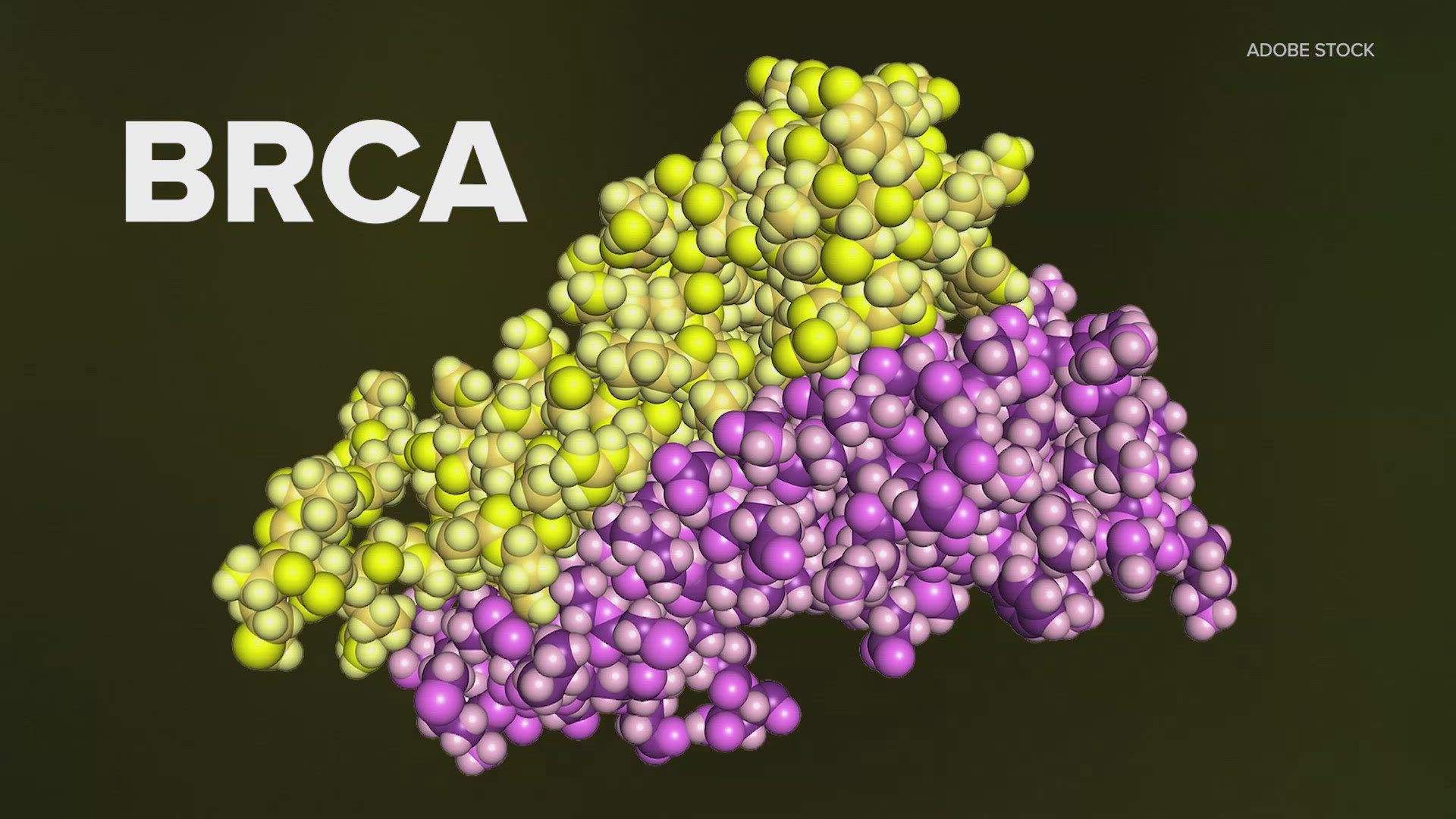SEATTLE — The BRCA gene is commonly recognized for its link to breast and ovarian cancer risk among women.
Mutations in BRCA1 and BRCA2 have been associated with increased risk for the cancers, but what may not be as well known, is that men can carry the gene mutation too.
A JAMA review released in July now wants more men to consider screening for the BRCA gene variant, as men who carry it may be at risk of other cancers that uniquely affect men, like prostate cancer.
Dr. Heather Cheng, a professor of hematology and oncology at Fred Hutchinson Cancer Center and director of Fred Hutch's Prostate Cancer Genetics Clinic, is one of the authors of the review.
She explains, every person inherits a copy of BRCA1 and BRCA2, which are genes that produce the proteins needed to repair any damage to DNA.
"They're basically proofreading genes," Cheng said.
But when a copy of BRCA has a mutation, any damages to DNA might not get fixed.
"That then leads to a higher risk of developing cancer because BRCA1 and BRCA2 are so important for maintaining the integrity of the DNA," Cheng said.
The BRCA mutation isn't only a risk factor for breast cancer but for other cancers like pancreatic and prostate cancer among men. More studies are needed if other types of cancer as associated with BRCA as well, according to Cheng.
For James DeLong, finding out he carried the gene mutation changed his perspective on his prostate cancer diagnosis.
DeLong, a Whidbey Island resident and Lecturer Emeritus at the University of Washington School of Social Work, was the picture of good health more than a decade ago, when he got the surprise of his life.
"I was diagnosed when I was 51 years old with very aggressive prostate cancer and I was stunned, because I was in incredibly fit health, I was a gym rat, I was a cyclist, I was a swimmer, I was a tennis player," DeLong said.
He said that mystery was solved 17 years later, when he was advised to meet with Dr. Cheng about screening for the BRCA gene mutation.
For DeLong, finding out about his BRCA variant even after his diagnosis, helped him.
"It was actually a bit of a relief for me because I had always wondered, all those 17 years, why, why did I get this with absolutely no risk factors?" DeLong said.
He then reflected on his own family history.
"Of course I immediately thought about my mother who had breast cancer when she was about 50, and my father's younger sister who had breast cancer when she was about 50 and eventually died of it," DeLong said.
He also informed his two daughters -- one of whom, inherited the BRCA mutation and soon started preventative measures.
"So yeah knowledge is power. Makes a difference. Can save lives," DeLong said.
It's exactly why Cheng said men should be aware of possibly carrying the gene.
"That is not only important for their family, but there are more treatments for those patients," DeLong said.
DeLong himself has a list of those treatment options handy, should he need them.
"I don't worry about dying from prostate cancer, which I could not say that eight years ago," DeLong said.
For more information on the full list of recommendations, visit www.fredhutch.org.

